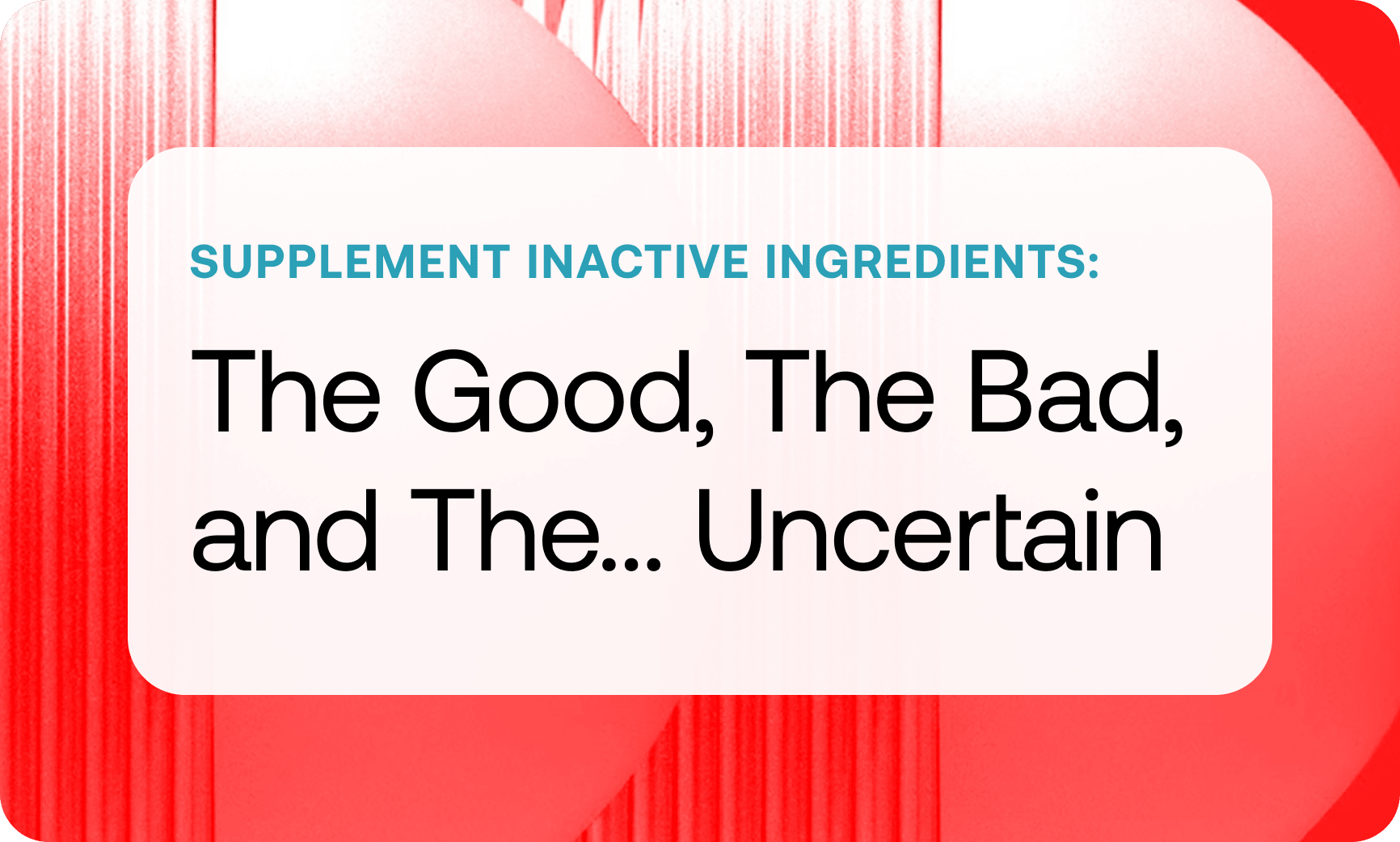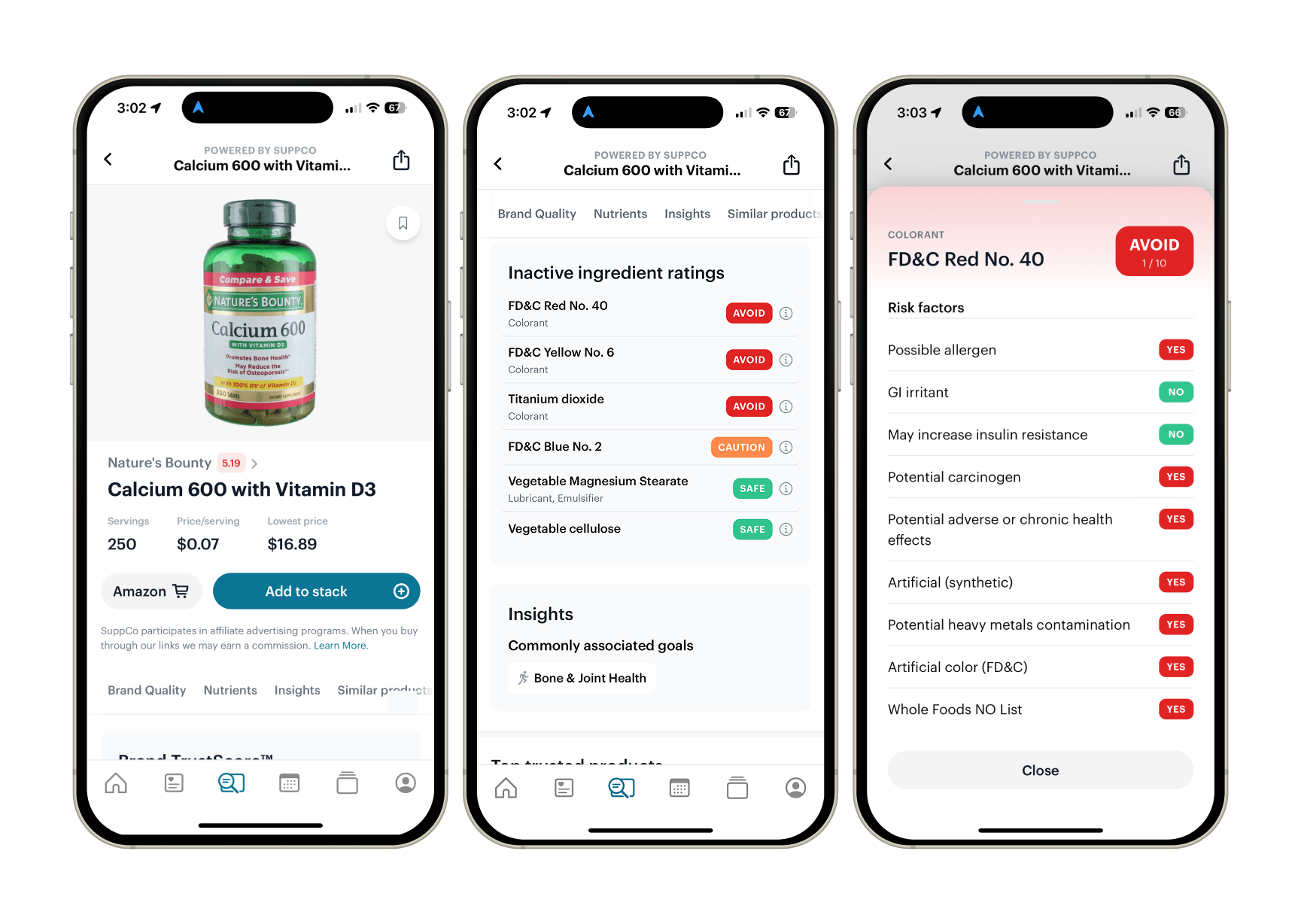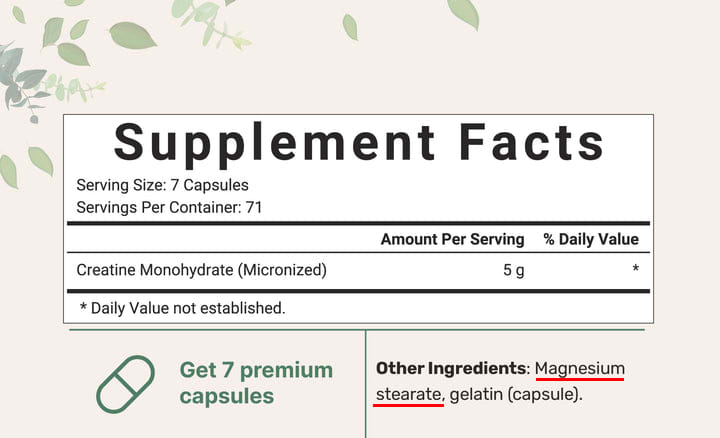Science Corner 03 | Supplement Excipients: The Good, The Bad, and The Uncertain

The Hidden Battle in Your Supplements
Your supplements are the site of an ongoing showdown: well-studied inactive ingredients working to deliver health benefits, versus potentially harmful additives that could be sabotaging your wellness goals.
This isn't just ingredient minutiae—it's a crucial distinction that determines whether your supplement supports or undermines your health.
The dividing line between "good" and "bad" excipients continues to shift as science advances.
Case in point: the FDA finally banned Red Dye #3 this year after decades of research linking it to serious health concerns, yet Red Dye # 40 remains legal and used in 904 supplements in SuppCo’s database.
Some compounds that were deemed "safe" for years are now officially recognized as dangerous, while others that aren’t probably should be —proving that what's in those "other ingredients" matters more than most realize.
The Inactive Ingredients to Avoid Now
Let's cut through the confusion and identify the supplement additives you should be avoiding:
Titanium Dioxide: The Silent Disruptor
This common white pigment damages intestinal barrier function and triggers inflammation. The European Food Safety Authority has already declared it unsafe, yet it remains in countless US supplements: 6,500 and counting in SuppCo’s own database.
Artificial Colors: More Than Aesthetic Concerns

Beyond Red Dye #3, other synthetic colors like Red #40, Blue #1 and Yellow #5 have been linked to:
Behavioral issues
Allergic reactions
Potential neurological impacts
Besides, does it really matter if your pre-workout mix is colorful?
Unhealthy Oils
Many supplements still contain unhealthy oils despite the FDA's 2018 ban on partially hydrogenated oils in most processed foods. These include refined vegetable oils (such as soybean or corn) high in inflammatory omega-6s and oxidized oils with harmful compounds.
Look for supplements with quality oils like olive, avocado, or MCT to avoid these health risks.
The Magnesium Stearate Dilemma

Magnesium stearate exists in two forms: synthetic (from animal fats/petrochemicals) and vegetable-based (from palm/coconut oils). Though chemically identical with the same anti-caking function, research suggests the synthetic form of ubiquitous flow agent may suppress immune function and interfere with nutrient absorption when consumed regularly.
Reviewing over 50,000 products in the SuppCo database containing magnesium stearate, the synthetic version appears almost 4 times more often than the vegetable version. Don't assume what's in your bottle is the healthiest form!
Your body deserves better. Check labels, demand transparency, and choose quality. Your health depends on it.
The Clean Alternatives: Excipients That Support Health
Not all excipients deserve skepticism. These clean options serve important functions without compromising your health:
Plant-Based Cellulose
Vegetable cellulose provides structure without introducing allergens or digestive issues—it's naturally sourced and easily processed by the body. Found in thousands of products in the SuppCo database, this ingredient is what makes up most of our daily capsules.
Rice Concentrate
This hypoallergenic filler offers superior performance without synthetic chemicals, providing natural flow properties with minimal reactivity.
Natural Silica
As an anti-caking agent, naturally occurring silica has a long history of safe use (unlike synthetic silicates).
MCT Oil
In softgels and liquids, MCT oil enhances absorption of fat-soluble nutrients while providing metabolic benefits of its own.
Take Control of Your Supplement Quality
The supplement industry evolves with new research constantly reshaping what we know about safety. What seemed harmless a decade ago might now raise red flags.
Your best strategy? Read labels critically and choose supplements with the cleanest inactive ingredient profiles possible. Your body deserves ingredients that support—not undermine—your health goals.
Want real guidance? Check out SuppCo's new Inactive Ingredient Ratings feature with breakdowns for over 125,000 supplements right on the product pages.
--
In the intricate world of supplements, we've uncovered a truth both humbling and powerful: complexity isn't a weakness, it's an invitation to deeper understanding. Those seemingly silent ingredients aren't just fillers—they're storytellers of manufacturing, safety, and potential impact. Remember, effectiveness isn't about aesthetic perfection, but about the nuanced dance between risk and reward.
As we navigate this landscape, let's embrace scientific skepticism: the absence of proven harm isn't the same as proven safety. Remember, our health journey isn't always about finding simple answers, but about asking better questions.
